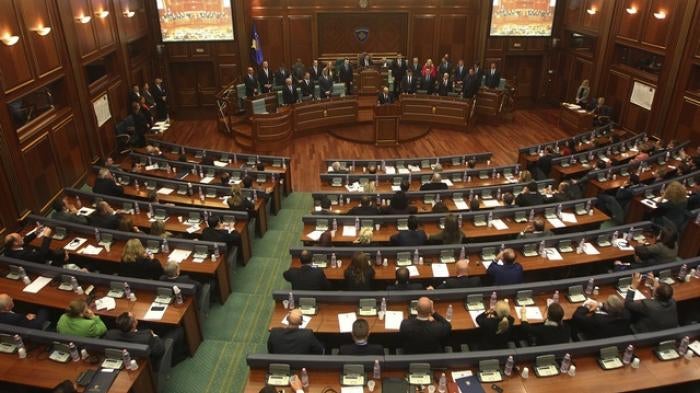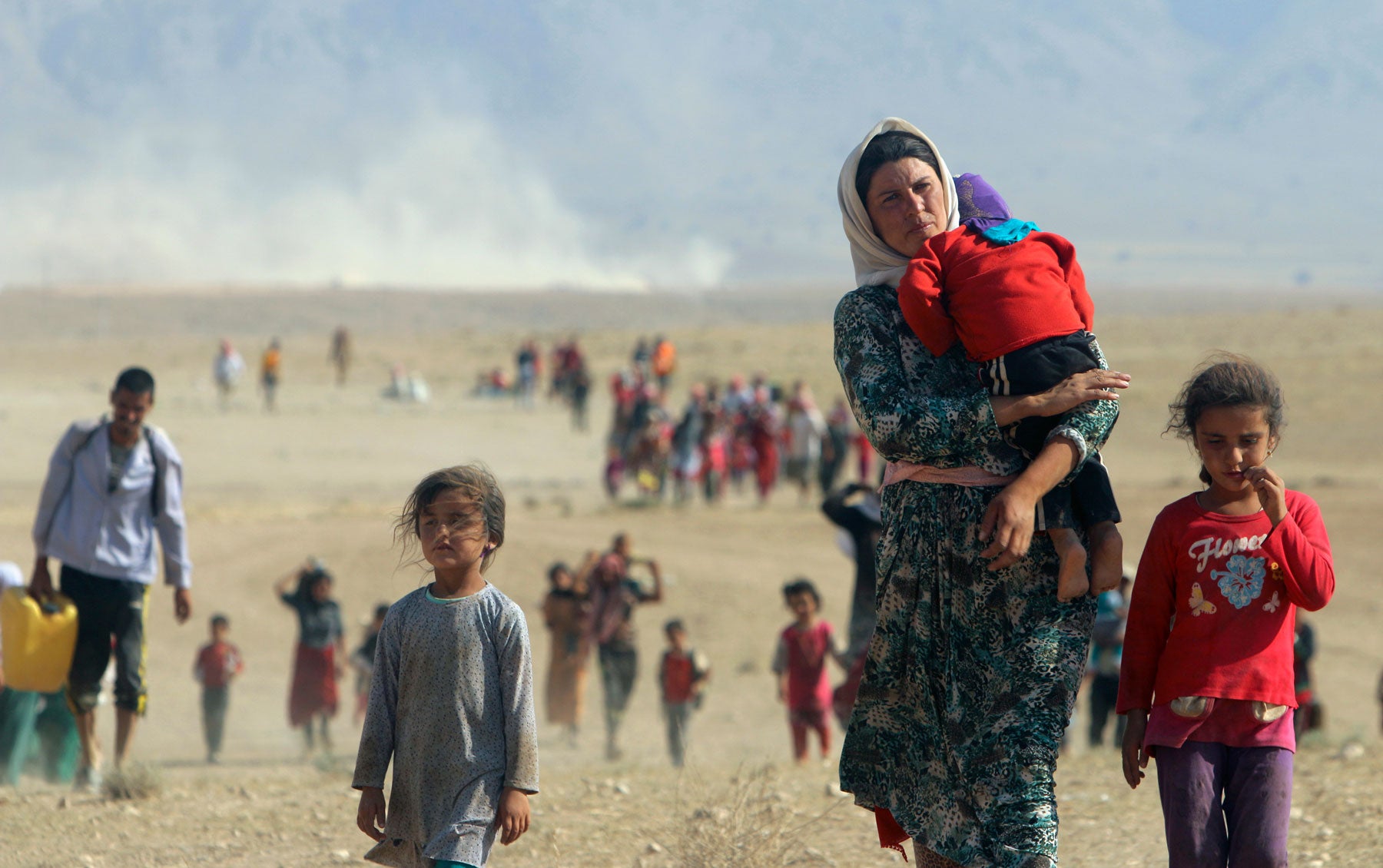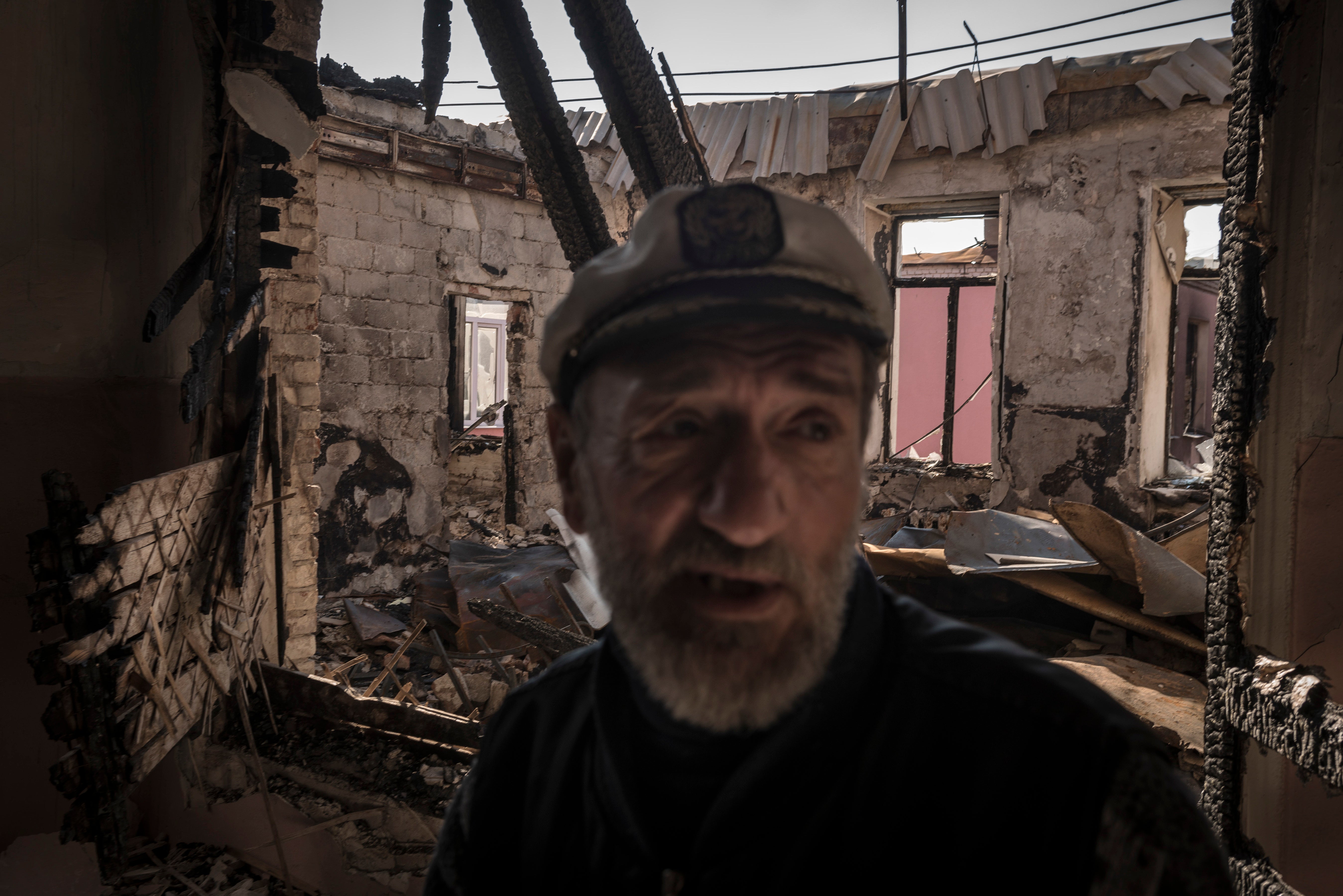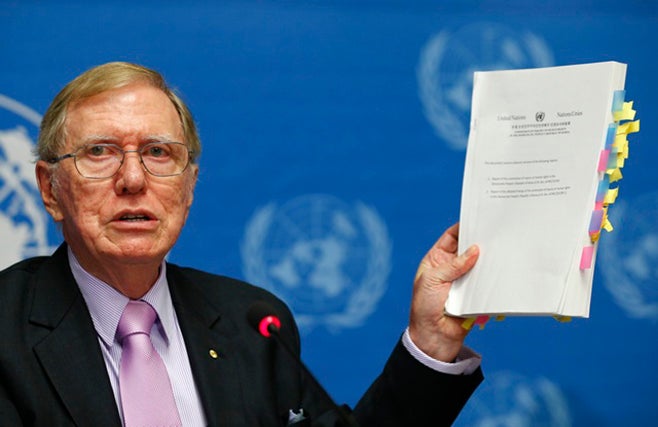There was limited progress in human rights protection in Serbia in 2014. War crimes prosecutions are slow and lack political support. The Roma minority continue to face attacks and harassment. The situation for journalists remains precarious, including attacks, threats, and lawsuits for reporting on sensitive issues. Hostility towards members of the lesbian, gay, bisexual, and transgender (LGBT) community continued and included threats and attacks.
Accountability for War Crimes
War crimes prosecutions progressed slowly in 2014 due to a lack of political support, resources, and staff at the Office of the War Crimes Prosecutor. Few high-ranking former military and civilian personnel have been prosecuted for war crimes. During the year, the War Crimes Chamber reached judgments in six cases, including two appeals. The Office of War Crimes Prosecutor indicted five people for crimes against civilians, including former Yugoslav Army General Dragan Zivanovic for war crimes in Kosovo in 1999. At time of writing, 6 trials were ongoing, indictments had been issues in 16 cases awaiting trial, and 20 cases were under investigation.
In February, the chamber sentenced nine former members of the Yugoslav Army to a total of 106 years of imprisonment for the killing of over 120 Albanian civilians in Kosovo in 1999. Also in February, the chamber sentenced Djuro Tadic to 10 years for participating in the killings by Bosnian Serb forces of 18 people, including a 13-year-old girl, in northwestern Bosnia and Herzegovina (BiH) in September 1992. Two co-defendants were sentenced to 11 and 10 years respectively.
At time of writing, the February 2013 war crimes protocol signed between BiH, Serbia, Croatia and Montenegro that details information sharing and cooperation, had not led to new prosecutions or convictions derived from case transfers.
In February 2014, a first instance court in Belgrade dismissed 12 Croatian ex-prisoners’ civil lawsuits against Serbia for torture in detention in 1991 on the grounds the claim was time-barred and there were no criminal convictions for the alleged abuse on which to base the civil claims.
In January, the International Criminal Tribunal for the Former Yugoslavia (ICTY) appeals chamber upheld the crimes against humanity conviction of former Serbian Assistant Minister of Interior Vlastimir Djordjevic for the murder, persecution, and forced deportation of Kosovo Albanians in 1999, but reduced his sentence from 27 to 18 years.
Also in January, the ICTY appeals chamber upheld its guilty verdict against former Yugoslav Deputy Minister Nikola Sainovic, former Yugoslav Army Generals Nebojsa Pavkovic and Vladimir Lazarevic, and former Serbian Police General Sreten Lukic for murder, deportation, and inhumane treatment of Kosovo Albanians in 1999. In doing so, a majority of the judges rejected the reasoning in the 2014 ICTY appeals chamber judgment in the Perisic case that an accused must have “specifically directed” assistance to commit crimes to be guilty of aiding and abetting.
Freedom of Media
Journalists continued to face threats, harassment, intimidation, and political and other interference. Between January and August, the International Journalist Association in Serbia reported five assaults on journalists, three direct threats, and 12 cases of political and other pressure.
In early July, FoNet News Agency Editor Davor Pasalic was severely beaten by three unknown assailants who demanded money and called him a Croatian fascist. Police were investigating at time of writing.
In May, online news sites Druga Strana and Teleprompter suffered cyber-attacks that temporarily shut down their websites, which had reported on the mismanagement and inefficiency of Serbian state institutions during severe flooding that the country experienced earlier the same month. The perpetrators of the cyber-attacks remain unknown. Srdjan Skoro, a former editor at the daily Vecernje Novosti, was dismissed from his post in May after speaking critically about the government’s handling of the floods in a Radio Television Serbia broadcast.
The government commission established in 2013 to investigate the murders of three prominent journalists more than a decade earlier made progress in only one case, resulting in four people being charged. The seven-member commission is tasked with analyzing all prior investigations, ascertaining why they failed, and gathering evidence to assist future criminal investigations.
Treatment of Minorities
Attacks and harassment against the Roma minority continued.
In February, a group of non-Roma attacked members of a Romani nongovernmental organization (NGO) in Novi Sad, northern Serbia. The Roma managed to escape into their office and called police for help, who refused to assist, according to the European Roma Rights Centre (ERRC). In March, four members of the NGO were brutally beaten by two non-Roma carrying sticks. One Roma man received serious head injuries and two others suffered lighter head injuries. Police were investigating at time of writing.
In April, around 15 men threw Molotov cocktails at a Romani Protestant church in the village of Bosnajce in southern Serbia, setting fire to the room where church ceremonies are held. Nobody was injured. According to the ERRC, three people were convicted in April in connection with the attack and sentenced to 30 days in prison.
Sexual Orientation and Gender Identity
LGBT people continue to face intolerance, harassment, and in at least one case, physical violence.
In September, a 27-year-old German LGBT activist was brutally beaten by a group of men and suffered serious injuries that required hospitalization. Police arrested three suspects. In April, the Gay-Straight Alliance received repeated emails calling for the murder of LGBT people and cleansing of LGBT organizations in Serbia. Three weeks prior, Gay-Straight Alliance members received death threats over the phone. A local LGBT group reported that the police had failed to identify the perpetrators.
In February, the Commissioner for Equality Nevena Petrusic issued an opinion that held that the Belgrade Bosko Buha theatre discriminated against a gay magazine by refusing to allow it to have information about one of its shows for publication. .
The May Belgrade Pride March, which had been cancelled for three consecutive years due to alleged security reasons, was held in late September amid heavy police security and was attended by 1,000-1,500 people, including three Serbian ministers, the European Union representative in Serbia, and several foreign diplomats. No violence against LGBT supporters was reported.
Asylum Seekers and Displaced Persons
In the first eight months of 2014, Serbia registered 6,974 asylum seekers, a significant increase from 2,567 during the same period in 2013. Syrians comprised the largest national group (3,696 people).
In 2014, three new reception centers opened in Serbia, adding to the existing two. For the first time since it assumed responsibility for the asylum procedure in 2008, the Asylum Office granted refugee status to one asylum seeker and subsidiary protection to three others. But its asylum procedures remain inadequate with thousands of pending claims.
By September, there were 96 unaccompanied migrant children registered in Serbia. According to the United Nations High Commissioner for Refugees (UNHCR), there are no formal age assessment procedures for unaccompanied migrant children, putting them at risk of being treated as adults and not receiving special protection. Guardians appointed to represent the interest of unaccompanied children are not sufficiently trained to accommodate their needs and rarely visit them after first contact.
Serbian authorities made little progress towards finding a durable solution for refugees and internally displaced persons (IDPs) from the Balkan wars living in Serbia. According to data from UNHCR, as of July there were 44,251 refugees in Serbia, most from Croatia, and as of September 204,049 IDPs, a majority of whom are from Kosovo.
Key International Actors
In April, Catherine Ashton, EU high representative for foreign and security policy, commended the new Serbian government’s commitment to fight corruption and establish law and order, but failed to emphasize Serbia’s human rights obligations.
EU Enlargement Commissioner Stefan Fule in May praised Serbia’s progress towards EU membership and emphasized the need to strengthen rule of law, but did not mention Serbia’s human rights record.
The European Commission’s October progress report on Serbia stressed the need to enhance the constitutional and legal framework to ensure an effective independent judiciary, and expressed concerns about freedom of expression, including continued threats and violence against journalists. The report also noted the limited number of war crimes investigations by Serbian authorities against high-level officers in domestic war crimes and lenient sentences handed down by Serbian courts in such cases.
The United States State Department 2013 human rights report on Serbia highlighted discrimination and attacks against minorities, especially Roma, and harassment of journalists as the most serious human rights issues during the year.
In May, Organization for Security and Co-operation in Europe (OSCE) representative on media freedom, Dunja Mijatovic, expressed concern about online censorship in Serbia, citing cyber attacks on websites that report critically on the government’s response to the flooding crisis.
Kosovo
The European Union and Kosovo government reached a landmark agreement in 2014 to establish a special court outside Kosovo to try crimes committed by former members of the Kosovo Liberation Army (KLA) during and after the 1998-1999 Kosovo war.
The continued failure to form a government after April elections and the crisis over the role of the Constitutional Court further weakened human rights protection. The justice system continued to be overburdened and international judges in Kosovo claimed widespread corruption among judges and prosecutors. Journalists and members of the lesbian, gay, bisexual and transsexual (LGBT) community continued to face threats and harassment. Inter-ethnic tensions flared mid-year and Roma, Ashkali, and Egyptian communities remained vulnerable to discrimination and social exclusion. Parliament changed an existing law to offer support to wartime rape victims.
Impunity, Accountability, Access to Justice
In April, the Kosovo parliament approved the establishment of a special court located outside Kosovo and presided over by international judges to adjudicate criminal prosecutions arising from the work of the European Union Special Task Force established in 2011 to investigate serious abuses during and after the Kosovo war. The Special Task Force based its work on findings of a 2010 Council of Europe report. The court will be based in the Netherlands and is expected to become operational once the Kosovo Assembly adopts necessary legislative changes.
Based on the decisions of European Union member states, the EU Rule of Law Mission (EULEX) mandate, although extended in April until June 2016, was significantly scaled back in June as a result of the transfer of some responsibilities to the local judiciary and prosecutorial branch. International EULEX judges, in a January letter to the head of the EULEX Executive Division, outlined their concerns with the downsizing of the mission, stating that the local judiciary was not fully equipped to handle sensitive and complex cases and that EULEX prosecutors should continue to prosecute war crimes, organized crime, and serious corruption cases.
Despite progress in recent years, the justice system in Kosovo remains weak, with inadequate security for judges, court staff, prosecutors, plaintiffs, and witnesses. This results in few prosecutions for serious crimes, such as organized crime and corruption.
In July, the EU Special Task Force published its findings and stated former senior KLA officials will face charges for crimes against humanity and other abuses committed after the 1998-1999 war.
As a result of an EULEX appeal to the 2013 November acquittal, the Kosovo Appeal’s Court in September reopened the case against former KLA commander, Fatmir Limaj, and nine co-defendants suspected of abusing prisoners at the Klecka detention center in 1998-1999. Two EULEX judges and one Kosovar judge will oversee the proceedings. The case illustrates weakness in Kosovo’s witness protection program: in the initial proceedings in 2012, testimony by the key witness, who was found dead in a park in Germany in December 2012 in what police called a suicide, was first ruled inadmissible, and on retrial, contradictory and unreliable.
In May, a first instance court in Mitrovica acquitted former KLA Commander Sylejman Selimi and three co-defendants of war crimes committed during the 1998-1999 conflict in a case concerning repeated assaults of two ethnic Albanian women held at the KLA detention center in Likovac. The court said the evidence was too weak and too much time had elapsed since the alleged abuse took place.
The trial of Kosovo Serb politician Oliver Ivanovic and other former Serb paramiliataries officials started in August. Ivanovic is suspected of war crimes by ordering the murder of four ethnic Albanians in Mitrovica in 1999 during the NATO bombing. He and three co-defendants are further charged with inciting others to commit murder during the February 2000 violence in Mitrovica where 10 ethnic Albanians were killed, 25 wounded, and more than 11,000 forced from their homes after being attacked by ethnic Serbs several months after the end of the war.
Between January and August, EULEX reported that two war crimes judgments had been issued by mixed panels of judges, one at the Basic Court and one at the Court of Appeals. A panel of EULEX judges also issued one judgment during 2014. At time of writing, there were 160 pending war crimes cases, of which 128 cases are with EULEX Special Prosecution Office prosecutors and 32 with Kosovo Special Prosecution Office prosecutors.
In November, the High Representative of the European Union for Foreign Affairs and Security Policy Federica Mogherini appointed an independent expert to review a EULEX internal investigation into alleged corruption in the mission. A EULEX prosecutor has alleged the mission failed to investigate her complaints about the matter and instead targeted her. The same month, EU Ombudsman Emily O’Reilly opened an inquiry into the EU’s handling of the corruption allegations.
The Human Rights Review Panel, an independent body set up in 2009 to review allegations of human rights violations by EULEX staff, handed down three decisions between January and September, including that EULEX had violated a complainant’s right to effective remedy in a case where a EULEX police officer attacked the complainant, who then could not work for several months.
The Human Rights Advisory Panel, an independent body set up in 2006 to examine complaints committed by or attributable to the United Nations Interim Administration in Kosovo (UNMIK), found violations in 59 out of 60 cases addressed between January and August.
In March, the Kosovo Assembly adopted legislation that recognized survivors of conflict-related sexual violence and abuse as veterans.
Treatment of Minorities
Roma, Ashkali, and Egyptian communities continued to face problems obtaining personal documents, which hamper their access to health care, social assistance, and education.
The continued failure to implement the 2010 Strategy and Action Plan for the Integration of Roma, Ashkali, and Egyptian communities stems from a lack of political will, funds, and cooperation between central and municipal authorities and between government and civil society.
A new strategy for reintegrating repatriated persons—including Roma, Ashkali and Egyptians—for 2014-2018 replaced the old 2010 strategy, improving the situation slightly for returnees in 2014.
Municipal Committees for Return were established dealing with assistance to returnees, mainly food and accommodation. Repatriated persons still face difficulties accessing employment, education, and health services and, as a result, more than 1,200 Roma, Ashkali, and Egyptians left Kosovo in 2014, according to Balkan Sunflowers, a local nongovernmental organization.
Inter-ethnic tensions in the north flared up in June, when a protest organized by Albanians from south Mitrovica sparked violence. Protesters clashed with Kosovo police and several people were injured and vehicles burned. In January, the Serb municipal councilor for north Mitrovica, Dimitrije Janicijevic, was shot dead outside his home. Police were investigating his murder at time of writing.
Between January and August, Kosovo Police Services reported three inter-ethnic incidents, without specifying their nature.
Asylum Seekers and Displaced Persons
During the first 10 months of the year, the United Nations High Commissioner for Refugees (UNHCR) registered 440 voluntary returns, including people from outside Kosovo and internally displaced persons, compared to 465 during the same period in 2013.
Deportations from Western Europe to Kosovo continued, with improved but limited assistance upon return. Between January and August, the Ministry of Interior registered 2,109 forced returns to Kosovo, including 261 Roma, 95 Ashkali, and 19 Egyptians. Most were returned were from Germany (341) and Switzerland (258).
Freedom of Media
Journalists continued to face attacks and threats during 2014, particularly those reporting on radical Muslim groups. In September, Visar Duriqi, a journalist at the GazetaExpress newspaper who had reported on political Islam, received death threats, including of beheading, when a radical Islamist group accused him of apostasy. Artan Haraqija, a journalist at Indeksonline news site, who worked on a joint report with Duriqi about radical Muslim groups operating in Kosovo, received death threats after he appeared on the KTV show “Rubikon” in September. Police were investigating both incidents at time of writing.
In September, the ombudsperson condemned threats against journalists and called on media, prosecutors, and police to act within the full scope of their mandates and not use methods that violate people’s privacy and dignity.
Sexual Orientation and Gender Identity
According to QESh, the only public LGBT organization in Kosovo, the LGBT community faced physical attacks and threats during the year, particularly via social and online media and on radio. According to QESh, in August, three men assaulted a gay man in Prizren. In June, a transsexual 17 year old in Pristina was verbally abused and threatened by three other boys his age, and in April, an 18-year-old gay man was verbally abused by his school teacher.
Key International Actors
In January, the Organization for Security and Co-operation in Europe (OSCE) called on Kosovo authorities to establish exactly how many forcibly returned asylum seekers were still in Kosovo and, in particular, identify members of communities UNHCR considers to be “at risk” and in need of international protection, including Serbs, Roma, Ashkali, and Egyptian communities.
EU High Representative Catherine Ashton in April welcomed the extension of EULEX’s mandate and the establishment of a specialist court to adjudicate abuses during and after the 1998-1999 Kosovo war.
The EU progress report on Kosovo highlighted shortcomings with rule of law, including judicial independence, stressed that witness intimidation remains a serious concern, and noted limited results in the fight against corruption and organized crime. The report called for the strengthening of the ombudsperson’s institution, the adoption of anti-discrimination legislation, and for human rights issues to be put higher on the political agenda, such as the implementation of the action plan for integrating Roma, Ashkali, and Egyptian communities.
UN Secretary-General Ban Ki-Moon in a May report stated that strengthening rule of law institutions remains a long-term challenge and called on authorities to improve their performance in this area.
In September, OSCE Representative on Freedom of Media Dunja Mijatovic condemned death threats and attacks against journalists in Kosovo and called on authorities to bring perpetrators to justice.
The Council of Europe Venice Commission in March published its opinion on an amendment of the Law on Freedom of Religion in Kosovo, outlining the need for a number of improvements, including expanding the list of religious communities that “constitute the historical, cultural and social heritage of the country” from five groups to include all other established religious groups.






